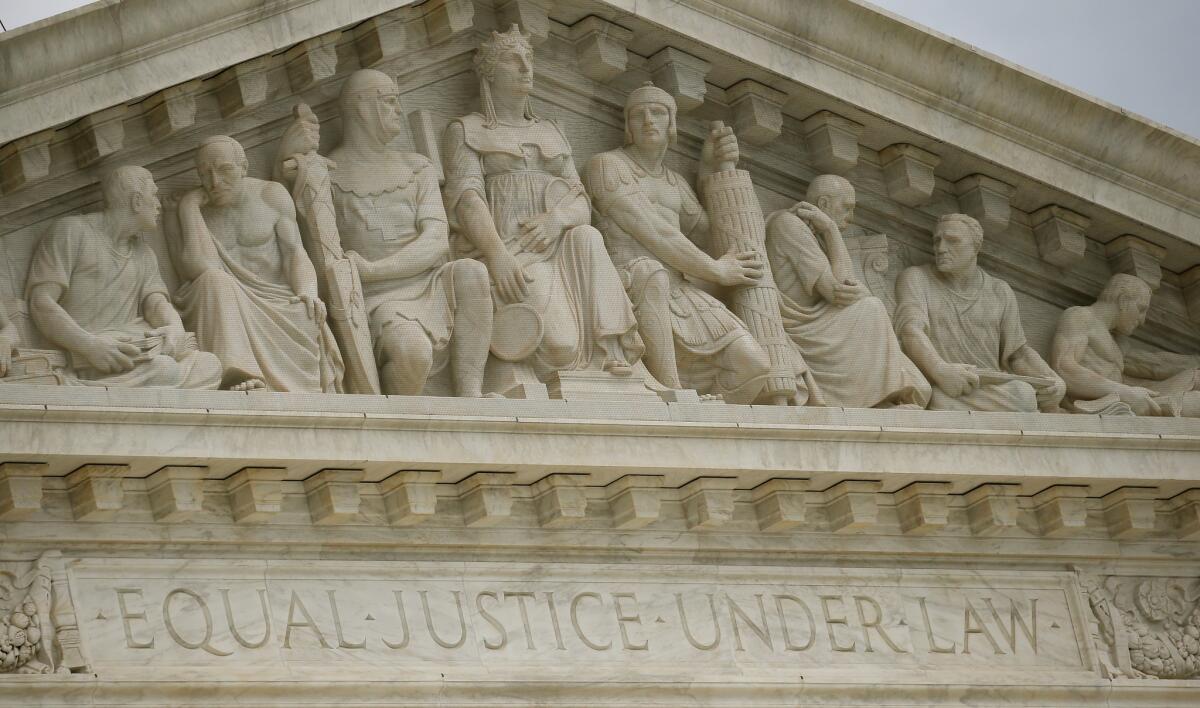Supreme Court strikes down L.A. law allowing police to examine hotel registries

U.S. Supreme Court building in Washington, D.C.
The Supreme Court has struck down a Los Angeles ordinance that permits the police to check guest registries at motels and hotels at any hour of the day or night.
The 5-4 decision upheld a ruling of the U.S. 9th Circuit Court of Appeals that vacated the law, saying it authorized unreasonable searches.
Most cities require the operators of a hotel or motel to keep a guest registry available for inspection. The Los Angeles city attorney’s office said some of these motels become havens for prostitution, sex trafficking and drug dealing. Police officers need the authority to conduct spot checks, the city said.
A group of motel owners went to court, alleging that the spot checks late at night were intrusive and disruptive for families running the motels. The group won a broad ruling from the 9th Circuit Court that held the ordinance unconstitutional.
Justice Sonia Sotomayor said motel owners deserve the right to go to a judge and to object before a search takes place.
“We hold that the provision of the Los Angeles Municipal Code that requires hotel operators to make their registries available to the police on demand is facially unconstitutional because it penalizes them for declining to turn over their records without affording them any opportunity for precompliance review,” she said in Los Angeles vs. Patel.
Sotomayor said the law should protect business owners from possible harassment by the police.
“In most contexts, business owners can be afforded at least an opportunity to contest an administrative search’s propriety without unduly compromising the government’s ability” to enforce the law, she said. And allowing a judge to approve the search in advance “alters the dynamic between officer and the hotel to be searched and reduces the risk that officers will use these administrative searches as a pretext to harass business owners,” she said.
Otherwise, a hotel could be “searched 10 times a day, every day, for three months, without any violation being found,” she said.
Justices Anthony M. Kennedy, Ruth Bader Ginsburg, Stephen G. Breyer and Elena Kagan agreed. They said police may obtain a search warrant if they suspect criminal activity at a motel or hotel.
Justice Antonin Scalia said police should have not have to “jump through procedural hoops” to get a warrant.
He said “the costs of this always-get-a-warrant alternative would be prohibitive for a police force in one of America’s largest cities, juggling numerous law-enforcement priorities and confronting more than 2,000 motels within its jurisdiction.”
On Twitter: @DavidGSavage
More to Read
Start your day right
Sign up for Essential California for news, features and recommendations from the L.A. Times and beyond in your inbox six days a week.
You may occasionally receive promotional content from the Los Angeles Times.







